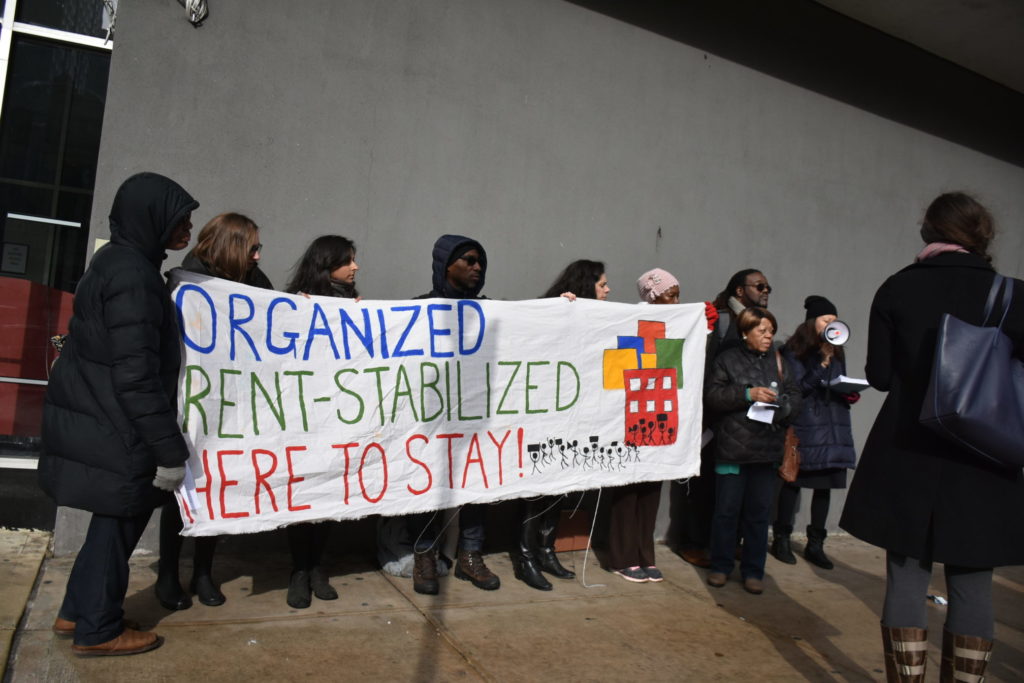Cuomo agrees to sign sweeping rent regulation reforms
The reforms reign in many programs advocates said were abused to push out rent-regulated tenants.

Tenants at a February rally. File photo by Ignacio Foster via UHAB.
The Democrat-controlled state legislature reached an agreement last night to implement sweeping reforms that will expand tenant protections and reduce landlord abuse.
It’s a significant win for a statewide coalition of tenant activists who campaigned for months to support a set of nine bills they called “universal rent control.” The deal reached on Tuesday contains nearly all of these proposals, or modified versions of them.
The reforms include closing the preferential rent loophole and significantly scaling back the Major Capital Improvement program. Tenant advocates claimed landlords abused these to create rent spikes in rent-regulated apartments in order to push out tenants and deregulate units.
